Sri Lanka faces Pakistan in an ICC World Twenty20?semifinal
Updated:?October 4, 2012, 5:07 PM ET
By?Wright Thompson?| ESPN.com
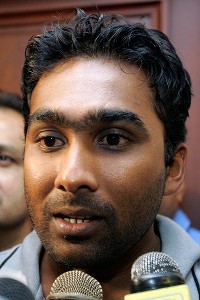
COLOMBO, Sri Lanka — Three years ago, the Sri Lankan cricket team rode through the streets of Lahore, Pakistan, on the third day of a five-day test match. Team captain Mahela Jayawardene, who is to his country what Derek Jeter is to the city of New York, rode near the back of the bus. The convoy, with a police escort, rolled through the streets outside the stadium. Mahela, known as MJ, took out his phone to call his wife, and that’s when they all heard what sounded like fireworks. Someone shouted, “They’re shooting at the bus!” They heard the bullets, marching down the side exposed to the terrorist gunmen, sounding like rain on a metal roof. Mahela dove for the floor, and the first 30 seconds of what happened next ended up on Christina Jayawardene’s voice mail. An RPG flew over the bus. A grenade rolled under it. It was a blur: policemen being shot in the street, dying on a Tuesday morning, bullets striking the tires, players screaming. When she played the message for Mahela’s oldest friend, tears flowed down her face as he listened.
“I got hit,” her husband shouted, and she heard the fear in his voice. Next his friend and fellow star Kumar Sangakkara, also a cricket legend, got hit with shrapnel, too, then another and another. Six in all were wounded, only one by a bullet. Soon, the bus driver would heroically drive them to safety, and Mahela would call the president of Sri Lanka on a private number, flexing for the first time anyone could remember, telling the politician to get him and his boys home. But on the floor of the bus, wounded by shrapnel and bleeding, Mahela felt sure that he’d die outside a stadium, killed for the crime of being a cricket star in a part of the world where the games seem to matter way more than they should.
Three years later, today ?
Sri Lanka is in the semifinals of the ICC Twenty20 World Cup, playing Pakistan again, this time in the safety of Colombo. The island is a strange and beautiful place, with dark restaurants serving enormous pepper crab, white-front colonial hotels glowing in the distance. The deep blue of the Indian Ocean is visible out every window, and like the ocean, there is a shadow of violence that’s never far away.
Locals bring it up it casually, not because they don’t want you to know about the past, but because it was so common for so long that it doesn’t really rise to the level of news. The stadium where the game will be played, someone said the other day, is named after a president assassinated during the long civil war. A late-night party was at a boutique hotel, which had been the home to an assassinated prime minister who was shot on the balcony. Earlier in the week, at a local television and radio studio, Shanaka Amarasinghe, the host of the nation’s most popular sports talk show, pointed at the multiple layers of security inside the compound. During the war, he explained, thugs attacked and burned the place, in response to criticism.
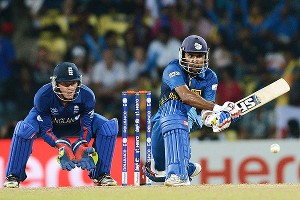
Waiting on the show to begin, Amarasinghe brought up a play called “The History Boys.” He recited a quote that described the challenge in Sri Lanka today:?History is not something that involves the recent past.
“We have no perspective on what we’ve just done,” he said.
The civil war ended three years ago, about two months after the bus attack in Pakistan. Military scholars gush over the brutal simplicity of the government’s endgame: Basically, they killed everyone in the leadership of the LTTE, the rebel army, known around the world as the Tamil Tigers. History will judge their actions, Amarasinghe said. Whatever comes next is still being sorted out. A knife’s edge, that’s where the country is, somewhere between the war of the past and the peace of the future. That’s what people talk about in the uncertain present, and in the middle of this painful conversation, there is a cricket tournament. Sri Lanka is in the semifinals, two wins away from its first world championship since 1996.
“Right now,” Amarasinghe said, “we need a hero.”
At the center of many expectations
The day before the game, Mahela sat in the Cinnamon Grand hotel, drinking tea with his wife and some friends. When he laughed, his whole face lightened and his shoulders heaved up and down. He laughs with his whole body. Christina and Mahela look like a cute couple, if that makes sense, and he seems to smile more when she’s around. As he made small talk, she leaned over to his ear and asked if he wanted a mocha, trying to make even the smallest thing easier. She wore a trendy green dress and carried a big Louis Vuitton Neverfull. When they first started dating, his friends wondered why he gave her so much control, and if that was healthy, but now they understand.
On Thursday, Sri Lanka advanced to the final of the ICC World Twenty20 cricket tournament by beating Pakistan by 16 runs. Sri Lanka will play the winner of the Australia vs. West Indies semifinal, which will be played Friday at 9:30 a.m. ET. The final match is scheduled for Sunday at 9:30 a.m. ET. Watch every match live on?ESPN3.
Everyone looked at Mahela, but nobody interrupted his tea. The lobby is the future Sri Lanka wants for itself: the peaceful gurgle of a fountain, the piano in the bar, the chandeliers reflecting off buffed floors. In back, sleek restaurants open onto the terraced pool. Outside the coffee shop, Kumar Sangakkara walked through the tables and saw his friend.
Mahela and Kumar — MJ and Sanga — are two of the best cricketers in the world, millionaires and subcontinent celebrities. They are often mentioned in the same breath — Coca-Cola billboards all over Colombo show them together, enjoying a cold bottle — and it’s together they’ve known their greatest success. Mahela is one of only six players, including Sachin Tendulkar, to score 10,000 runs in both International Tests and One-Days. Kumar, a former captain, is close to becoming the seventh. Together, they hold the record for the highest score by a partnership in test match history, a 624 against South Africa, batting for nearly two and a half days. They are as connected in the history books as they are in the imagination of their countrymen.
They also couldn’t be more different. Mahela is quiet and earnest. Kumar is boisterous and sophisticated. When Mahela is taken by a friend to meet a reporter, he apologetically asks if he might finish tea first. When Kumar is led across the hotel bar by one fan to meet another, he grins and hams it up, rolling his eyes. Mahela, with his open smile, looks like someone you would trust with your taxes. Kumar, with his Hollywood curls, looks like someone you wouldn’t trust with your sister. They are old and dear friends who’ve been on a journey only they really understand, walking together onto hostile pitches around the world, hiding on the floor of a wounded and smoking bus. When fans see them together in the lobby, they recognize one first —MJ!?— and then the other –?My God, Sanga!?— and, by the time they’ve processed their luck in a double sighting of Sri Lankan cricket royalty, they’re about too flustered to speak.
Mahela checks his watch. There’s a bowlers meeting in 40 minutes, and as team captain, he needs to fine-tune their strategy. He sits down, leans in, and in a quiet and steady voice, tells the story of his life, and Kumar’s life, and everyone who has lived in Sri Lanka for the past three decades of death and division. When he tells it, it is oddly a story of hope.
“I grew up with the war,” he says. “I’m 35 years old. From 6, 7 years old, I remember the war, the bombs going off, and all that. I literally grew up — so that’s my generation.”
The Lost Generation, found
They never knew a Sri Lanka without conflict.
Mahela grew up hearing explosions in Colombo. “I have two, three school friends who caught a couple of bombs,” he says. “I have a friend who still has shrapnel inside his body. He has to carry a certificate whenever he travels, going through machines and all that.” People his age learned the smell of burned bodies on the roadside and the sight of bloated corpses bobbing in the river. In 1983, during the violent riots where Sinhalese attacked their Tamil neighbors, Kumar’s Sinhalese father moved three dozen or so Tamils into his home and hid them from the roving squads of killers, like something out of Anne Frank. The children played in the yard until Kumar’s father would rush them upstairs to hide, in silence. Kumar crouched as the killers went door to door. The easy-going, good-looking cricket star on television has that in his memory.
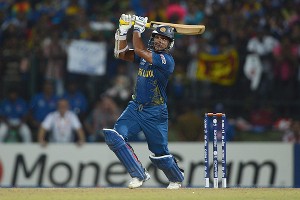
In the midst of this terror, they tried to do the normal things: playing sports, chasing dreams. Mahela, even at a young age, was a prodigy. The adults looked at him and predicted great success, and while Kumar is known for working harder than anyone else on the team, Mahela is known as someone who never stumbled on the jagged boulders of expectation. “He’s from a very average family,” says his oldest friend Sanjeewa Jayawardena, known to everyone as Java. “He had a younger brother, who also played cricket.”
The brother was named Dhishal, and when Dhishal was 16, during an otherwise normal day at school, he collapsed. Doctors diagnosed a tumor, and Mahela’s father sold almost everything they owned, borrowing to make up the difference. He found enough money to fly to London to the best hospital they could find. Dhishal survived the first operation, but when the cancer returned, and his dad sold the rest of their possessions, he didn’t survive the second. He died and the family returned home, broke and broken. “Mahela had his bat and the shoes,” Java says. “When he came back, they didn’t have anything. Not a TV, nothing.”
Mahela didn’t play cricket for months, his bat and shoes in the closet. Finally his teammates convinced him to come back against their biggest rival. Even rusty, he dominated, and from that moment on, his destiny was clear. He’d be the best batsman in his country. Success came quickly, and everything he made, he used to pay off his family’s hospital debts. His cricket success would always be tied to the loss of his brother, which he hates to talk about. When cricket media want to do documentaries, he bristles when they use photographs of Dhishal because he knows his parents will watch, and he knows the sight of his brother will make them cry. His new friends don’t know much about Dhishal, and his old ones know not to ask. But the memory is there, just one of many scars for a child of Sri Lanka’s civil war. In his hotel room, Java says in the lobby of the Cinnamon Grand, he always sets up a shrine. Two photographs, one of his wife, the other of his brother, happy and very much alive, which is how Dhishal is best remembered.
Mahela takes that photograph everywhere he travels.
Leading
Several years ago, Mahela finished a high-profile, five-day test match down the coast in Galle, against England, the former colonial overlords. Test matches are physically and mentally exhausting, more so for the captain. In American sports, the captain is a largely ceremonial title. In cricket, he makes every decision about on-field strategy. So Mahela led Sri Lanka to a hard-fought draw in the test match — and a victory in the overall series — scoring a 213, not out, which is like going for 55 points in a basketball game.
The next morning, with Java shaking his head, Mahela said his local cricket club in Colombo had a game, and he thought he should show up and play. Imagine Tiger Woods winning the Masters, then humping it back for a low-profile pro-am. Java said Mahela even called the club and apologized that he’d be at the grounds only an hour and a half before the first ball instead of the customary two hours.
In the execution of a fielding strategy he designed, he sprinted across the pitch after each over, putting himself in the most difficult position instead of delegating it, and his hunch paid off: In the closing overs of the match, a long ball came straight to him, and he caught it for an out. Being a cricket captain, like being someone a nation can look up to, isn’t about grand pronouncements.
It requires a series of small actions, repeated over and over, day after day.
Lessons about power
Java tells a story about his friend.
This happened a few years back, a month after finishing a crushing second in the 2007 World Cup. It was during the war, when checkpoints regularly stopped traffic on the highways. Java and Mahela, the team captain, rode back late at night from a friend’s funeral. Java drove. It was dark and empty on the garrison road. The troops stopped them. It was dark, the soldiers focused and on edge, the cricket star was out of context. Java was exhausted and needed to get home.
“Tell him who you are,” Java begged.
“I won’t,” Mahela said.
Java laughs now in the hotel lobby.
“This guy asked for the ID,” he says, “so he gave him the ID. The ID doesn’t say ‘Mahela Jayawardene,’ it says ‘Denagamage Proboth Mahela de Silva Jayawardene.’ Even if you read it, it doesn’t click, unless you look for it, you know?”
They waited on the soldiers to finish searching their car and then drove on to town. Java was annoyed and wanted to know why Mahela wouldn’t do something so simple that would speed up their day.
“I may play cricket,” he said, “but let them do their job.”
It’s just a little example, a random moment, but in Sri Lanka, where everyone uses whatever influence they can accumulate, it is significant. Last Sunday’s newspaper carried a typical, full-page story about a top official’s son who allegedly pulled a gun on a general — a tour de force of dropped names and threats — and during a civil war, people learned lessons about power quickly and simply: If you don’t have it, get it; when you have it, use it. Mahela had power, and he wouldn’t spend it on his own convenience. In a time of war, that might make him naive. But in a nation trying to reinvent itself as place of peace, that makes him a star in the sky.
A healing
Mahela tells a story about himself, about Sri Lanka’s past and future, and what a cricket game can mean. Everyone knows how many people died when the tsunami hit Thailand in 2004, but not as many know that the same waves roared ashore in Sri Lanka, in both the south and the war-torn north. More than 30,000 people lost their lives. Many just disappeared, washed out to sea. The government and the rebels stopped fighting, and the cricket team, one of the only things each side could agree on, went north to carry aid. They found that rebel soldiers, who’d been fighting a guerilla war for decades, knew their results and their records. Like any other fans, they made suggestions about lineup changes, and offered opinions on who could bat best against off spinners. Mahela said that standing in a war-zone, hearing the people he knew as the enemy talking with such passion and ownership about the Sri Lankan cricket team, he left with the hope that they might one day feel that way about something else, and then something else, until a broken nation is whole again.
The possibilities and limitations
There are, of course, limits to what a cricket star can do, to what a team winning a game can accomplish, and if Sri Lanka’s World Cup victory in 1996 proves anything, it’s that cynicism and violence can squander any momentary wave of joy.
But they can raise money and carry supplies to the north, and they can play hard and win. They can address small problems. They can show up at a club match after a five-day test. They can battle the corruption and cynicism that could drag Sri Lanka back to its past, a circle of petty score-settling and division. They can accumulate power and try their best to use it for good.
Kumar, who is really a brilliant speaker and writer, chose the most public forum possible. The Marylebone Cricket Club in London, the self-proclaimed guardians of the game, invited him to give the annual Spirit of Cricket Cowdrey Lecture. He was the first active cricketer to do so. A friend asked if he needed help. Kumar smiled and said no. He knew just what the moment required. He gave no quarter, standing before a room of cricket legends and a bank of cameras. The most headlines at home came from his unsparing and specific criticism against the corruption in Sri Lankan cricket. Sitting in the hotel lobby, Mahela laughs about the speech and the fallout that followed.
“I knew it would be interesting knowing Kumar,” Mahela says, seeming even a little in awe of his articulate friend.
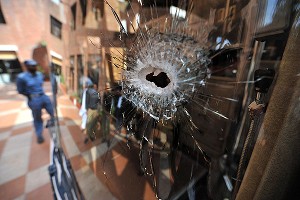
Mahela has fought this battle, too, in his own way. In 2009, he resigned the captaincy, in part because he grew tired of fighting the backroom power plays. Sri Lanka’s own sports minister once described the cricket board as the third most corrupt organization in the country, behind the schools and the police. Mahela didn’t need power that bad. Ten months ago, he returned to the job. His team needed him, and you can’t help but think that, at least in part, it’s because he knows what an important time this is. The end of his career is much closer than the beginning, and the new Sri Lanka will be made in the next few years, by people his age, the ones who inherited the war and saw it end.
“You want to take that ownership,” Mahela says. “This is a great opportunity for our generation to try and bridge that gap and then help the next generation to heal by itself. Our generation has been through the war, so that emotionally, it’ll be tough for them, but for the next generation it’ll be much easier.”
They can set an example. That’s what Kumar’s speech was, really: the example, and the lessons, of a generation. The story of Mahela, and Dhishal, and the Sinhalese who attacked their neighbors and the Tamils hiding in Kumar’s house, of the Sri Lankans who will cheer today, and of those who will play.
Kumar talked about the riots. He wove his life through bombs, and the fear, and the hope, the arc following the history of cricket, and how it could provide the road map for a new country. The most emotional part, for him and for listeners, came when describing what happened after the assassination attempt in Pakistan. At a checkpoint a week later, a soldier asked if his injuries were healing. Kumar said everything felt good, and that he suffered only a few moments of gunfire, while soldiers are threatened by it daily. The soldier’s answer stuck with Kumar.
“It is OK if I die,” he said, “because it is my job and I am ready for it. But you are a hero and if you were to die it would be a great loss for our country.”
Beyond the myth
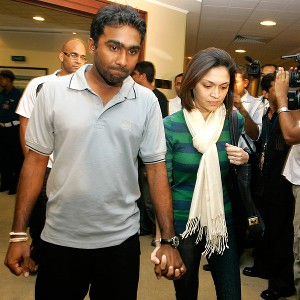
There’s a photograph you should look at during the match, especially when Mahela makes the long walk from the pavilion to the center of the pitch, with a nation holding its breath. It’s the other side of soldiers calling cricketers heroes, and it’s much closer to the truth. The photograph was taken after the terrorist attack in Pakistan, when the players returned safely home, landing at the airport in Colombo. Officials showed up to greet them, and maybe end up on the news. Parents showed up for the younger players, wives and children for the older ones. Christina arrived without her usual calm and polish, rushing to wrap her arms around Mahela. The homecoming was a nationalist outpouring of love, relief and anger, a chance for cricket to again carry water for big ideas that have nothing to do with bowling a ball, or batting it. A photographer caught the couple walking away, and he seems exhausted, and she seems pale, and all around them, there is chaos. But look at the bottom of the picture. They are holding hands, fingers locked tight, a husband and a wife doing the best they can in a part of the world where the games seem to matter way more than they should.




Leave a Reply
You must be logged in to post a comment.